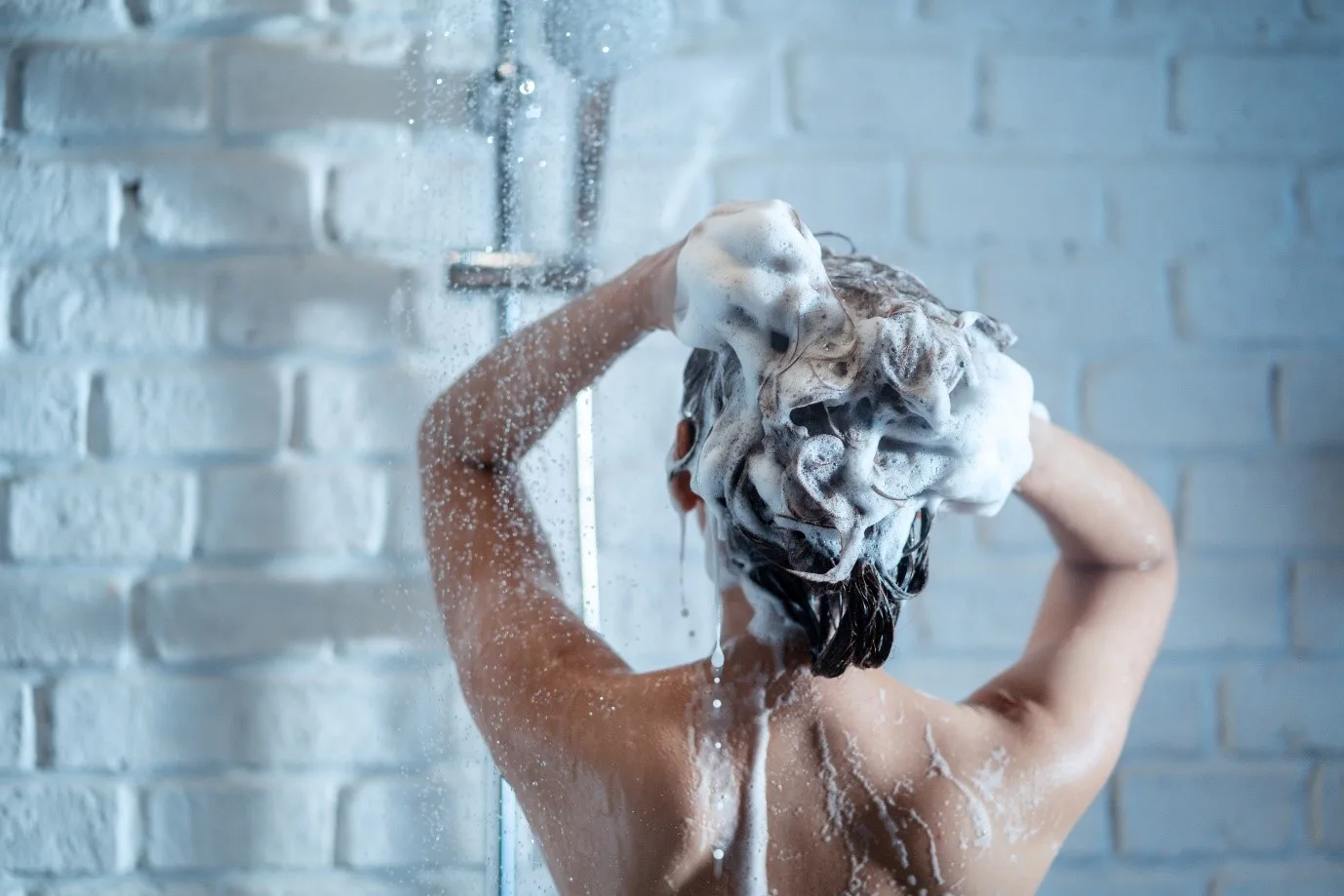DOES REGULAR SHAMPOOING CAUSE DANDRUFF?
Are your dandruff problems caused by how often you shampoo your hair?

Almost everyone will tell you that you need to maintain scalp hygiene, in whatever way you deem correct. But if you want to understand whether regular shampoo is good for hair and dandruff, you need to first understand why people use shampoos.
Why do you need to wash your hair and scalp?
Can regular shampoo use cause dandruff?
How do you know you are over-washing your hair?
Why do you need to wash your hair and scalp?
The main component of this answer is Oil. Your body produces oil or sebum, which is secreted by numerous sebaceous glands found on the skin. This oil is vital in maintaining the health of your skin and hair. It creates a protective coat that hydrates your hair strand, flowing from the roots to the tips. But if excess oil is secreted, it can start to weigh down your hair and give it a greasy look.
This can be worsened by sweat and external pollutants. Your sweat can mix with the oil and leave behind minerals on evaporation, which can weaken your hair and cause inflammation on your scalp. Dirt, pollution, germs, and even excessive styling products can build-up and lead to further reactions.
You use shampoo to get rid of all of these products from your hair and scalp, thereby keeping your hair clean. Shampoos help maintain a healthy ecosystem on your head and regulate normal function. Leaving any of the products on your scalp and allowing it to build-up can cause untold issues, including dandruff.
Can regular shampoo use cause dandruff?
When you have an unhealthy scalp and oily hair, the immediate reaction is to use a mild shampoo for regular use. But when it comes to dandruff, you’re better off understanding it first.
Dandruff is caused by a fungus, known as Malassezia Globosa, that occurs naturally on the scalp. This fungus feeds on any excess oil that is found on your scalp and breaks it down into fatty acids. Your body may or may not react to this, but almost half of the people in the world do. If you are sensitive towards this, your body will be triggered into itching, redness, and the shedding of white flakes.
Regular shampoo use is good for your scalp as it can regulate the amount of oil build-up. But using too much shampoo can have a negative effect. It can strip away the natural oils that are trying to protect your skin, sending a signal to your body to produce more oil to coat the hair and skin. You’ll end up using more shampoo, and this creates a cycle where your body keeps producing excess oil. This can end up aggravating your dandruff, which should answer your question - is regular shampoo good for hair dandruff or is it harmful.
How do you know you’re over-washing your hair?
The key thing to remember is that every hair type and body type is different. So, the amount of shampoo that you require differs from the next person. People with dry hair so are recommended to wash less. People with oily hair and are directed to wash more regularly. When you’re thinking ‘is regular shampoo good for hair’, it depends on how you define ‘regular’.
However, there are some symptoms that might help you identify if you’re over-washing:
- Dry and frizzy hair.
- Dandruff and itching.
- Hair colour has started to fade.
- Split ends.
- Loss of shine and lacklustre hair.
- Hair starts to become oily, even though you just washed it.
What alternatives exist?
If you feel like you need a different option to the regular shampoo that you’re using, you can try these options:
Dry shampoo –
This is used sometimes by people who live in a hot, humid climate and can’t wash their hair often. It can potentially absorb oil and sweat, while preventing any greasiness. You don’t use it on wet hair in the traditional manner and apply it only when you don’t want to wash your hair. Be careful with how often you use it.Co-wash –
Co-wash has picked up in popularity and people even use it as a dandruff treatment. It basically means to use cleansing conditioners instead of shampoo. It can moisturise, hydrate your hair, and potentially clean the scalp. But it can also lead to a build-up of oil on your head and increase dandruff. Avoid conditioners with silicones and heavy oils.Home-made cleansers –
Instead of using a shampoo for dandruff, people often use home-made cleansers which utilise ingredients like apple cider vinegar, lemon juice, fenugreek seeds, etc. While these have shown to be effective, it is important to be careful with how your body reacts to the ingredients.What is the best way forward?
It is important to understand that shampoos are not bad for you. It is only when you over-use, that they can potentially cause you problems. It is generally recommended that you use shampoos 2-3 times a week, but that again depends on your hair type. The best shampoo for regular use is whatever works for you.
Here are some of the hair care tips you should follow:
- Shampoo less but enough.
- Use conditioners to nourish and strengthen your hair strands.
- Add hydrating and heat protection oils like Argan oil, occasionally.
- Time your workouts so that you match with your shampoo days.
- Don’t let your head overheat.
And if you’ve already got dandruff, the best shampoo for regular use should be the one that can get rid of the dandruff causing germs, like Head and Shoulders shampoos. If you want to clean your scalp and protect it from dandruff, try the Head and Shoulders Neem. Or try the Head and Shoulders shampoo and conditioner 2 in 1 Smooth and Silky, which can remove up to 100% of the dandruff flakes and restore your dry hair.



